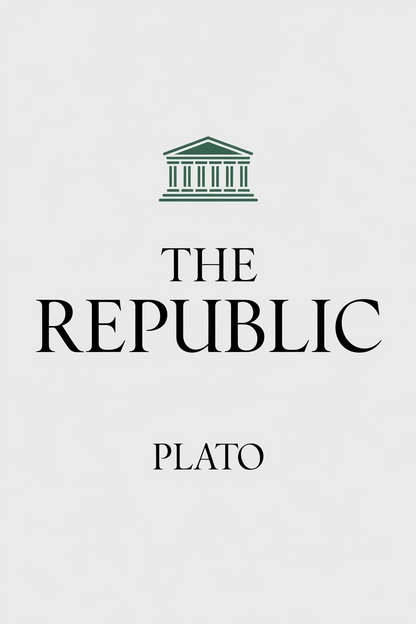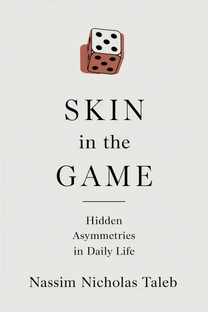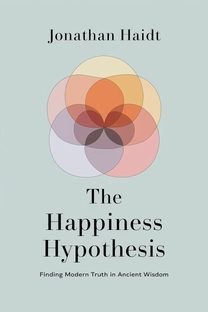
The Republic
by Plato
Brief overview
This book explores the nature of justice, the structure of an ideal society, and the development of moral character within both individuals and governments. It examines how different forms of rule emerge and why striving for wisdom and virtue can create a more harmonious community. By following the journey of reason and enlightenment, the work ultimately shows how genuine goodness benefits both individuals and the state.
Introduction
Imagine a world where personal ambition never eclipses the common good. In these pages, a longstanding conversation on justice and civic order unfolds, painting the picture of a truly just society. Through a series of lively dialogues, it prompts us to question what lies beneath the surface of our everyday beliefs about right and wrong.
We begin with a simple query that resonates across time: Why be just at all? Skeptics argue that selfishness yields greater reward, while others claim there is a deeper wisdom in acting ethically. This tension forms the heart of the book, guiding us on a philosophical journey that still captivates readers centuries later.
Beyond mere speculation, these discussions aim at practical outcomes: a framework for leadership, a formula for education, and a gentle reminder that enlightenment is not the privilege of a few but a pursuit open to all. In seeking justice, we strive to merge the well-being of society with our highest potential as thoughtful individuals.
Why Justice Matters
Early in the conversation, a bold claim arises that justice is merely the advantage of the stronger. Under this view, power justifies itself: whoever seizes control can dictate what is right. Yet the book’s central argument counters this, insisting that such a narrow pursuit of dominance erodes genuine well-being.
Instead, a truly just individual acts in ways that strengthen the entire civic body. Doing good for others may seem to put oneself at a disadvantage, but the process fosters social harmony. When injustice reigns, internal discord leads to struggles that harm not just the oppressed but also those in positions of authority.
Crucially, the text highlights that a person who appreciates the intrinsic value of justice experiences a kind of happiness unattainable by those forever seeking only power or riches. The debate sets the stage for deeper inquiries into whether a just society is feasible and how leaders might embody justice in practice.
What is The Republic about?
"The Republic" by Plato is a profound exploration of justice, governance, and moral character, challenging both individuals and societies to aspire towards greater wisdom and harmony. This philosophical work dissects the complexities of human nature and political structures, presenting a holistic view of how individual virtues reflect in the society at large. Through engaging dialogues, Plato proposed a vision of an ideal community where the pursuit of truth and justice underpins both personal and civic life.
In "The Republic," readers embark on a journey alongside Socrates as he dialogues with various Athenian figures, seeking to unravel the essence of justice. The text delves into key themes such as the balance of social roles, the necessity of moral education, and the pursuit of a just life as the most fulfilling path. Plato's exploration of reality versus perception, embodied in the allegory of the cave, remains a touchstone for contemporary philosophical and political thought. Its significance transcends time, inspiring generations to rethink leadership, law, and society's pursuit of the greater good.
Review of The Republic
"The Republic" remains a cornerstone in philosophical literature, distinguished for its enduring relevance and intellectual rigor. One of its key strengths is its exploration of justice, prompting readers to rethink conventional notions through the Socratic method of persistent questioning. Plato's adept use of allegory and dialogue makes complex ideas accessible, allowing readers to grapple with foundational questions about society and the self.
Practically speaking, "The Republic" teaches timeless lessons on the integration of ethical leadership and education in shaping civic life. It urges leaders to prioritize community over self-interest, advocating for wisdom-driven governance. Its immersive dialogues offer a reflective journey that fosters critical thinking and encourages a deeper understanding of societal dynamics and personal morality.
Plato's eloquent prose is both a testament to philosophical inquiry and accessible to readers irrespective of their background in philosophy. This book's relevance spans a range of audiences, including academicians, leaders, and anyone curious about ethics and justice. As a recommendation, "The Republic" serves as an invaluable resource for those seeking to tread the path of wisdom, encouraging contemplation on what constitutes a well-ordered life both individually and collectively.
Who should read The Republic?
- Philosophy Students: The text is essential for anyone pursuing an understanding of Western philosophy and its roots, offering insight into key philosophical principles.
- Aspiring Leaders: Those interested in governance will find Plato’s ideas on ethical leadership and justice both inspirational and instructive.
- Educators: Reflecting on how moral education shapes societies, this text serves as a guide for teachers aiming to impart ethical values.
- Philosophical Enthusiasts: Readers fascinated by existential questions can appreciate the dialogues for their depth and timeless relevance.
- Academics in Political Science: The ideas presented influence political theory and provide a basis for discussions on governance and justice.
About the author
Book summaries like The Republic
Why readers love Mindleap
10-Minute Book Insights
Get the core ideas from the world's best books in just 10 minutes of reading or listening.
Curated For You
Discover your next favorite book with personalized recommendations based on your interests.
AI Book ExpertNew
Chat with our AI to help find the best book for you and your goals.
Reviews of MindLeap
Love how I can get the key ideas from books in just 15 minutes! Perfect for my busy schedule and helps me decide which books to read in full.
Alex R.
The summaries are incredibly well-written and the audio feature is perfect for my commute. Such a time-saver!
Jessica M.
Great app for personal growth. The insights are clear and actionable, and I love how they capture the essence of each book.
Chris P.
The app is beautifully designed and the summaries are top-notch. Definitely worth every penny!
Sarah K.




